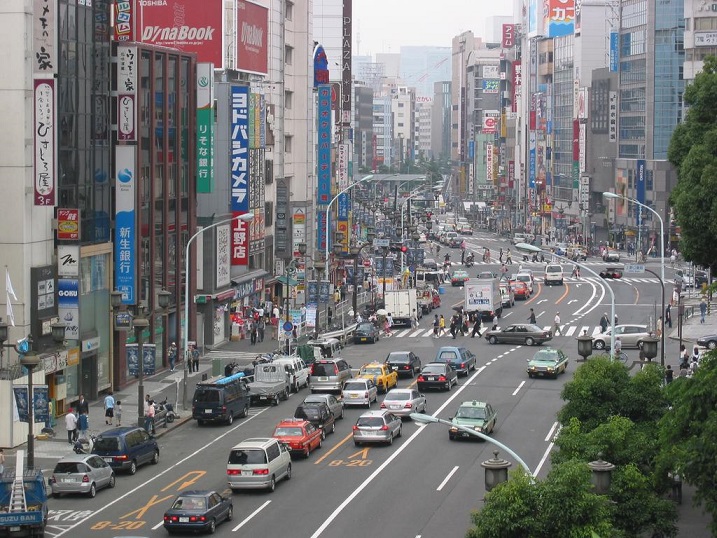Now Reading: Japan’s auto exports declined 40 percent due to chip shortage
-
01
Japan’s auto exports declined 40 percent due to chip shortage
Japan’s auto exports declined 40 percent due to chip shortage

Japan’s auto exports declined 40.3 percent in September from the previous year, as the increase in COVID-19 cases disrupted the supply chain in Southeast Asia and an ongoing semiconductor shortage forced domestic automakers to reduce production, government data showed Wednesday.
According to the report by the Finance Ministry, car shipments logged the first year-on-year decrease in seven months and the largest drop since a decrease of 49.9 percent in June 2020 during the initial shock of the coronavirus crisis and may hinder the country’s economic recovery.
The decline in car exports led to a slowdown in the increase of Japan’s overall goods exports in the reporting month.
The total shipments in September saw a 13.0 percent boost from the earlier year and stood at 6.84 trillion yen (60 billion U.S. dollars), compared with an increase of 26.2 percent in August and 37.0 percent in July.
Imports increased 38.6 percent to 7.46 trillion yen (65.2 billion dollars), up for the eighth straight month, largely caused by increasing prices of crude oil purchased from producer countries.
As a result, Japan’s trade balance indicated a deficit of 622.76 billion yen (5.4 billion dollars), turning into red ink from a surplus of 667.36 billion yen (5.8 billion dollars) a year earlier for the second consecutive month.
In the first half of fiscal this year from April, Japan’s merchandise trade posted a deficit of 389.79 billion yen (3.4 billion dollars), being the first loss since the first half of fiscal 2020.
Exports increased 34.2 percent year-on-year to 41.46 trillion yen (362.2 billion dollars), and imports increased 30.3 percent to 41.85 trillion yen (365.6 billion dollars).
Stay Informed With the Latest & Most Important News
Previous Post
Next Post
-
 01Polestar Boss Says It’s Time To Outrun BMW M And Mercedes-AMG
01Polestar Boss Says It’s Time To Outrun BMW M And Mercedes-AMG -
 02Spy Shots: 2027 Mitsubishi Pajero Spotted in Testing Ahead of Possible U.S. Return
02Spy Shots: 2027 Mitsubishi Pajero Spotted in Testing Ahead of Possible U.S. Return -
 032026 Toyota Hilux EV: A Powerful Truck with Silent Torque
032026 Toyota Hilux EV: A Powerful Truck with Silent Torque -
 04Spy Photos: VW ID. Polo GTI Goes Electric with 223 HP and 280 Miles of Range
04Spy Photos: VW ID. Polo GTI Goes Electric with 223 HP and 280 Miles of Range -
![2027 Mercedes-Benz S-Class Debuts with V8 Engine [Photo Gallery]](https://speedlux.com/wp-content/uploads/2026/01/2027-Mercedes-Benz-S-Class-33-155x125.jpg) 052027 Mercedes-Benz S-Class Debuts with V8 Engine [Photo Gallery]
052027 Mercedes-Benz S-Class Debuts with V8 Engine [Photo Gallery] -
 06The Controversial Ford Voodoo V8 That Was Killed Off Too Early
06The Controversial Ford Voodoo V8 That Was Killed Off Too Early -
 07Hyundai Palisade’s Breakout Year Shows How Quickly the Market Can Turn
07Hyundai Palisade’s Breakout Year Shows How Quickly the Market Can Turn



![2027 Mercedes-Benz S-Class Debuts with V8 Engine [Photo Gallery]](https://speedlux.com/wp-content/uploads/2026/01/2027-Mercedes-Benz-S-Class-33-700x394.jpg)










































